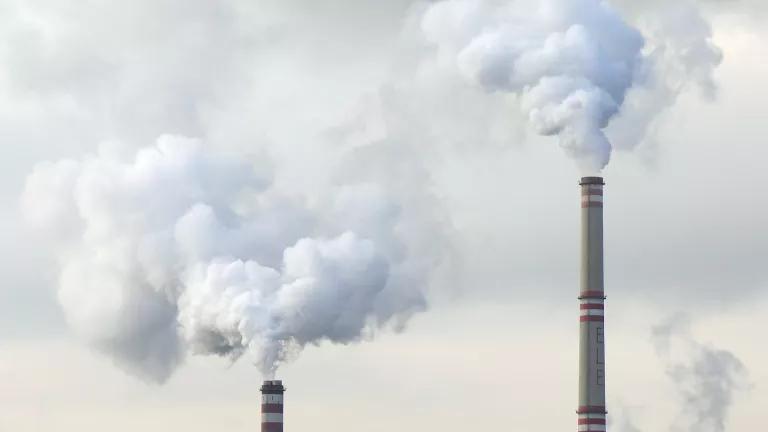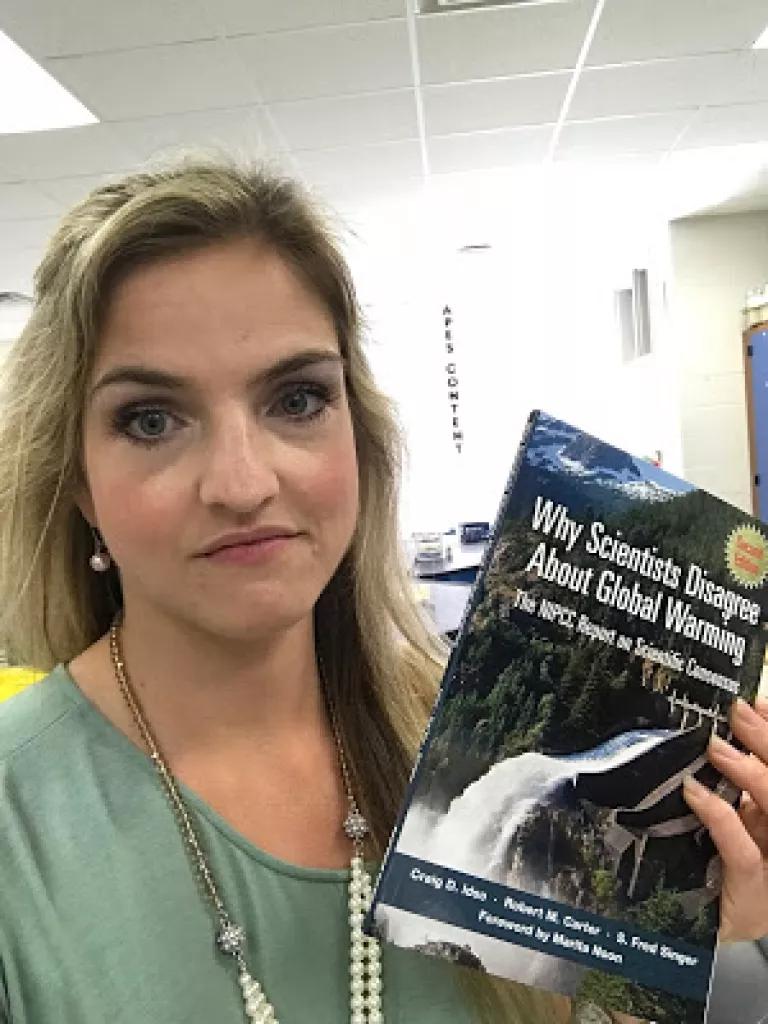Climate Deniers Seize the Day!
With funding from the fossil-fuel industry, a denialist think tank is mailing its anti-science propaganda to 200,000 schoolteachers. Hmmm, what could be behind their newfound boldness?

Regardless of how you vote or self-identify politically, I’m betting we can all agree that the concept of basic, factual truth has never, in our lifetimes, seemed more vulnerable.
The degradation of truth has played out most visibly in the political arena. Many of us are still trying to wrap our heads around the idea that the dissemination of “fake news” during the 2016 campaign may well have led to the election of our current president, whose press secretary betrays no compunction whatsoever regarding the mistruths he routinely spouts to journalists—and, by extension, to the American people. Meanwhile, cable news and social media amplify the echo-chamber effect, making it easier than ever for individuals to have their biases reinforced by dubious assertions dressed up as facts.
Most people see this weakening of our ability to detect the truth as a modern tragedy. But some see it as a golden opportunity.
Among the opportunists are the well-funded cynics at the Heartland Institute, a Chicago-based think tank whose raison d’être is mainstreaming the denial of anthropogenic climate change. After years spent swimming against the tide of science, reason, and consensus, they sense that the cultural waters are finally shifting—that we’re entering a new, post-truth era in which empiricism is subject to ideology and facts can be selected or rejected, buffet-style, according to one’s tastes.
Late last month, 25,000 science teachers around the country received a slick, well-packaged, and wholly unsolicited book (with accompanying DVD) titled Why Scientists Disagree About Global Warming. The book was gifted to these teachers by its publisher: the Heartland Institute. Over the next month or so, the organization says, it plans to send the book to every last science teacher in the country—which means they’ve got about 175,000 more to go. The ultimate goal is clear: to seize this post-truth moment in time by encouraging educators to “teach the controversy”—classic climate denier parlance for sowing disinformation under the guise of fostering debate.
As soon as the mailing came to light, news outlets such as The Washington Post and PBS’s Frontline kicked into gear, exposing the Heartland Institute as a political (as opposed to scientific) organization and revealing its many ties to the fossil-fuel industry. And there’s been admirable pushback from science teachers themselves, the overwhelming majority of whom accept current climate science and don’t buy the denialist line that any open, honest discussion of global warming requires lying to students about a debate among scientists that—let’s be perfectly clear—doesn’t exist. (One particularly angry educator in Georgia went so far as to publish a brilliant chapter-by-chapter rebuttal of Why Scientists Disagree About Global Warming that absolutely demolishes any of the authors’ claims to scientific integrity.)

The Heartland Institute’s attempts to sway public opinion are so frequent (and largely ineffective) that they almost don’t qualify as newsworthy. My own internal debate over whether to give this nefarious gang of anti-science apparatchiks the free publicity that comes from excoriating them in a column is mirrored by many environmental organizations who would just as soon ignore the group’s dark doings altogether. As I’ve written before, climate deniers crave nothing more than the appearance of a spirited public argument over climate change; that’s what helps them launder their lies in the marketplace of ideas and makes their illegitimate obfuscation look like legitimate dissent.
But suddenly, ignoring the deniers—refusing to dignify their lies by engaging with them at all—no longer seems like an option. The demonstrable mendacity of our nation’s top elected official, coupled with the public’s willful conflation of fake news with real news, has changed the rules of the game. With climate deniers now occupying the White House, leading the U.S. Environmental Protection Agency and the Department of Energy, chairing the Senate Committee on Environment and Public Works, and possibly heading the Council on Environmental Quality, we can no longer afford to put our faith in Americans’ ability to discern fact from fiction, truth from ideology.
This, in other words, is the cultural and political moment that the Heartland Institute has been waiting for. As much as we’d like to believe that sending 200,000 schoolteachers a free lesson plan that might as well be called How to Lie to Kids About Climate Change reflects the desperation of climate deniers, the truth is that it’s a sign of their revived self-confidence.
Most science teachers will toss the Heartland Institute’s propaganda into the trash, where it belongs. But some won’t. Some will fall for the line that their commitment to academic integrity requires them to suggest that there’s a significant debate among scientists over climate change—when, in fact, nothing could be farther from the truth. Whether they intend to or not, these teachers will then set about planting the seeds of doubt in young minds, all the while telling themselves that by “teaching the controversy” they’re somehow honoring the intellectual legacy of science.
That’s all that climate deniers could ever dream of asking for right now: Plant those seeds. They’re perfectly happy—not to mention well equipped—to take things from there.
This article was originally published on onEarth, which is no longer in publication. onEarth was founded in 1979 as the Amicus Journal, an independent magazine of thought and opinion on the environment. All opinions expressed are those of the authors and do not necessarily reflect the policies or positions of NRDC. This article is available for online republication by news media outlets or nonprofits under these conditions: The writer(s) must be credited with a byline; you must note prominently that the article was originally published by NRDC.org and link to the original; the article cannot be edited (beyond simple things such grammar); you can’t resell the article in any form or grant republishing rights to other outlets; you can’t republish our material wholesale or automatically—you need to select articles individually; you can’t republish the photos or graphics on our site without specific permission; you should drop us a note to let us know when you’ve used one of our articles.


Liquefied Natural Gas 101
The Uinta Basin Railway Would Be a Bigger Carbon Bomb Than Willow
How to Ditch the Biggest Fossil Fuel Offenders in Your Life